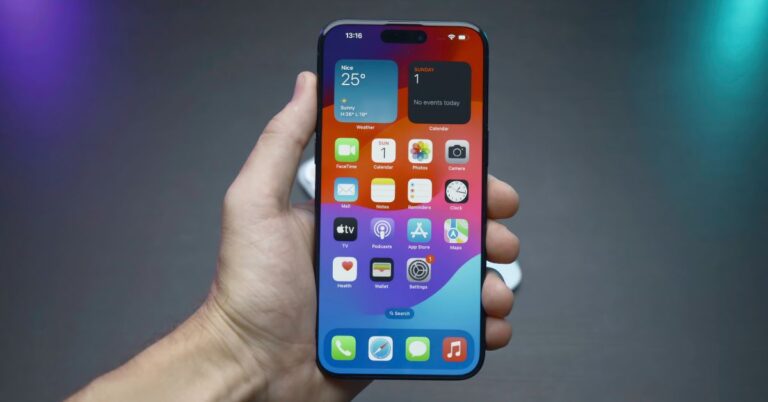- 1. The Importance of IoT Development
- 2. Technology That All DevOps Teams Need
- 3. 1. Big data and analytics platforms
- 4. 2. Artificial intelligence (AI) and machine learning (ML)
- 5. 3. Edge computing
- 6. 4. Secure communications protocols
- 7. 5. Device management platforms
- 8. 6. Automation tools
- 9. 7. Security tools
- 10. 8. Virtualization and containers
- 11. 9. Connectivity management platforms
- 12. 10. Billing and payments platform
- 13. Final Thoughts
In order to stay competitive, every IoT manufacturer and DevOps team needs to be aware of the latest technology. Unfortunately, there’s a lot of it out there, and it can be hard to keep track of it all. DevOps leaders and experts say these are ten pieces of technology essential for any IoT manufacturer or DevOps team.
The Importance of IoT Development
Security is one of the most important things to consider when developing for IoT. Because IoT devices are connected to the internet, they’re potential targets for hackers. As such, it’s important to make sure that your devices are as secure as possible. There are a number of different ways to do this, but one of the most effective is to use device encryption. This ensures that even if a device is hacked, the data on it will be unreadable without the proper key.
Another important piece of technology for IoT manufacturers is a reliable push notification system. Push notifications are how you’ll communicate with your users, whether to let them know about a new product update or alert them of an issue. It’s important to have a push notification system in place so that you can quickly and easily reach all of your users.
Finally, you’ll need some way to manage all of your devices. IoT devices can be spread across the world, making them difficult to keep track of. A device management platform will allow you to remotely monitor and manage all of your devices from one central location. This is especially useful if you need to deploy software updates or make changes to device settings.
Technology That All DevOps Teams Need
In order to stay competitive, every IoT manufacturer and DevOps team needs to be aware of the latest technology. Unfortunately, there’s a lot of it out there, and it can be hard to keep track of it all. DevOps leaders and experts say here are the technologies that are essential for any IoT manufacturer or DevOps team.
1. Big data and analytics platforms
In order to make sense of the huge volume of data generated by IoT devices, manufacturers need big data and analytics platforms. These platforms help identify patterns and trends and uncover problems and inefficiencies. They can also be used to create predictive models that can help manufacturers avoid potential issues in the future.
2. Artificial intelligence (AI) and machine learning (ML)
AI and ML can be used to automate various tasks, including diagnostics, monitoring, and maintenance. This can free up time for DevOps teams so they can focus on other tasks. Additionally, AI-powered chatbots can be used to provide customer support.
3. Edge computing
Edge computing is a type of distributed computing that brings computation and data storage closer to the devices that generate and collect data. This is important for IoT because it reduces latency and bandwidth issues associated with sending data back and forth to a central location. It also helps conserve energy because less power is required to transmit data over shorter distances.
4. Secure communications protocols
IoT devices need to be able to communicate with each other securely in order to function properly. secure communications protocols such as TLS/SSL, SSH, and IPsec can help ensure that data is transmitted securely between devices.
5. Device management platforms
IoT manufacturers need a way to manage the devices they produce, especially if those devices are being used in an enterprise setting. device management platforms provide a way to remotely monitor and manage devices and deploy software updates and security patches.
6. Automation tools
Automation tools can help IoT manufacturers and DevOps teams automate various tasks, such as provisioning, monitoring, and managing devices. This can save time and improve efficiency.
7. Security tools
With the increase in IoT devices comes an increase in the potential for security breaches. That’s why IoT manufacturers and DevOps teams need security tools, such as intrusion detection and prevention systems (IDS/IPS), firewalls, and antivirus software.
8. Virtualization and containers
Virtualization and containerization can help isolate different parts of an IoT system, which is important for security. Additionally, these technologies can be used to create test environments where new software can be safely tested before being deployed to production systems.
9. Connectivity management platforms
IoT devices need to be able to connect to each other and to the internet in order to function properly. Connectivity management platforms help manage these connections and ensure that data is transmitted securely between devices.
10. Billing and payments platform
If you’re selling IoT devices or services, you’ll need a billing and payments platform that can handle the complexities of recurring billing. This platform should be able to support multiple payment methods, as well as offer features such as subscription management and customer self-service.
Final Thoughts
In order to stay competitive in the ever-changing world of technology, every IoT manufacturer and DevOps team needs to be aware of the latest advancements. While there’s a lot of new technology out there, there are five pieces that experts say are essential for any IoT manufacturer or DevOps team: big data and analytics platforms, artificial intelligence (AI) and machine learning (ML), edge computing, secure communications protocols, and device management platforms. by staying up-to-date on these technologies, your team will be better equipped to succeed in today’s fast-paced marketplace.






